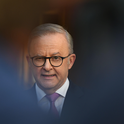Here we go again. Former Ukip leader Nigel Farage has declared that he will visit the Republic of Ireland to back a conference which could, he hopes, instigate that country’s own departure from the EU. After 'Quitaly', 'Frexit' and 'Nexit', a newly coined neologism has emerged to blast our ears: 'Irexit.'
Or maybe not. Irish mainstream politics seems to have little time for ideas like that—as does politics in Italy, France and the Netherlands—all EU founding members. There, the idea of leaving Europe is still the stuff of emerging fringe movements, led by so-called ‘populists.’ You only wonder if they could ever take off properly, as they did in the UK.
In Spain—soon to be the union's fourth largest economy if Article 50 isn't recalled—they've apparently made no appearance at all. Euroscepticism is a teeny-weeny thing among Iberians: Portugal seems immune to it, too. Catalan also separatists want to stay in Europe; their leader Carles Puigdemont is living in 'exile' in Brussels. His move there was an unequivocal political statement in line with a federal Europe future. A manifesto in action.
So, is the Nigel Farage-backed conference to explore the possibility of the Republic of Ireland ever leaving the EU going to attract that much attention? Even a month before the Dublin event—called “Irexit: Freedom to Prosper”—there's already no mincing words over it. Fine Gael Senator Neale Richmond has termed it a “sham gathering.”
At the time when a surge in Irish passport applications from the UK is under way, calling for Ireland to follow its bigger neighbour seems a long shot—especially given how daft the UK looks right now in the eyes of many.
"But for many of those who voted Leave, the intention surely was only to blow the bloody doors off. The referendum was an opportunity to vent a general rage at the Establishment, much of it justified. It was a free flying kick at the well-upholstered bums. But instead of being a controlled explosion of anger, it has sent the whole vehicle of state skywards," columnist Fintan O'Toole wrote in the Irish Times.
That brings us on to another country where Farage surely hopes for an equivalent movement to “take back control.” The Dublin symposium is being organised by prominent Brexiteer MEPs from the Eurosceptic European Parliament group, with the help of Irish contributors.
But guess who is also part of Europe of Freedom and Direct Democracy (EFDD), the Euro-alliance of wanna-be Leavers in Strasbourg? Italy's Five Star Movement (Movimento 5 Stelle, or M5S).
Italians will vote for their new parliament on Sunday 4 March 2018. Not long. M5S lost by a whisker in the 2013 general election; they are currently topping the polls, at very close to 30 per cent.
Up until very recently, they were also the closest allies Ukip had in Europe.
Then something went slightly wrong PR-wise. Having achieved their Brexit goal, Ukip suddenly appeared further away from Italy's main dissenters, at least when it came to their short-term domestic plans. Now, M5S want to be perceived a dash less radical, for fear of losing precious votes. In other words, they don't want to look silly and are making an effort to tone down their initially abusive language.
They even tried to quit EFDD a year ago, but then quickly moved back in after being firmly rejected by the most pro-Europe group of all, the broad-shouldered Alliance of Liberals and Democrats for Europe (ALDE). Leader Beppe Grillo and company publicly dumped Farage only to put their tail between their legs and return a few days later. Now we know who wears the trousers in the direct democracy house.
That this charade seems not to have hurt their standing begs the question: Is “Quitaly”—the Italian version of Brexit, a neologism coined by Quartz, which quickly propagated across the UK media—still on the cards? Could a historic Eurosceptic victory in the deep south embolden a new Leave campaign in the north?
Italy's public debt keeps rising, as everyone knows, with very little growth to counterbalance it: some prefer to point their finger at Brussels and the euro instead of casting their lens on the country's own many governments' failures (nearly 70 in between 1946 and now). How many will go for this side of the story is anyone's guess, but it could easily be several millions.
Ireland has shown an Iberian attitude thus far. We shall find out over the next few months if the Celtic Tiger's rewon confidence and rock-solid stance might change. Nothing ought to be ruled out. Experts and polls don't always get it right. (Although they mostly do.)
But frankly, how do you manage to untangle yourself from the Euro without causing an almighty havoc? That's the fundamental question that should keep our minds focused. There's Eurosceticism, yes, but 'anti-Euroscepticism' is just as sound—if not more.












